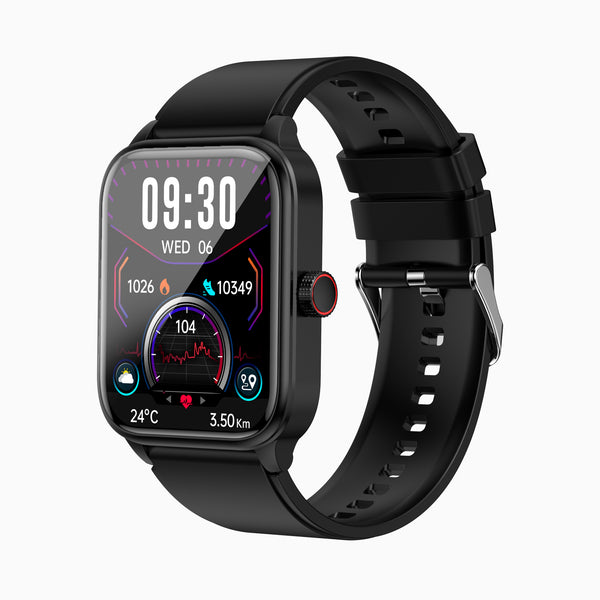Smart Watch Blood Sugar
Sugar is a ubiquitous part of our diets, found in various forms in almost all types of foods and beverages. While it provides a quick source of energy, excessive sugar consumption can have adverse effects on our health. In this blog, we'll delve into the recommended daily sugar intake and explore how you can make informed choices to maintain a balanced and healthy diet.
Understanding Different Types of Sugar
Before we discuss daily sugar intake, it's essential to understand the different types of sugar:
-
Natural Sugars: These occur naturally in foods like fruits, vegetables, and dairy products. They come with essential nutrients and fiber.
-
Added Sugars: These are sugars added to processed foods and beverages during manufacturing or preparation. Added sugars provide empty calories with little to no nutritional value.
Recommended Daily Sugar Intake
The World Health Organization (WHO) and other health organizations provide guidelines on daily sugar intake:
-
WHO: Recommends that added sugars should make up less than 10% of your daily caloric intake. Ideally, reducing this to below 5% of total calories is even better for overall health.
-
American Heart Association (AHA): Suggests a daily limit of no more than 100-150 calories (about 25-38 grams) of added sugars for most adults, which is roughly 5-10% of total daily calories.
-
Dietary Guidelines for Americans: Recommend limiting added sugars to less than 10% of daily calories.
Effects of Excessive Sugar Consumption
Consuming too much added sugar can have several negative health consequences:
-
Weight Gain: High sugar intake is associated with weight gain and obesity, increasing the risk of related health issues.
-
Type 2 Diabetes: Excessive sugar consumption can contribute to insulin resistance and type 2 diabetes.
-
Heart Disease: High sugar diets are linked to an increased risk of heart disease, including high blood pressure and high triglyceride levels.
-
Dental Problems: Sugar promotes tooth decay and gum disease.
-
Inflammation: Excess sugar intake may lead to chronic inflammation, a precursor to various chronic diseases.
How to Reduce Sugar Intake
Reducing your sugar intake doesn't mean you have to give up all sweets. Here are some tips:
-
Read Labels: Check food labels for added sugars and choose products with lower sugar content.
-
Limit Sugary Beverages: Reduce or eliminate sugary drinks like soda, fruit juices, and sweetened teas.
-
Choose Whole Foods: Opt for whole fruits and vegetables over processed snacks.
-
Cook at Home: Preparing meals at home allows you to control added sugar in your dishes.
-
Moderation: Enjoy sugary treats in moderation, as occasional indulgence is fine.
Maintaining an optimal daily sugar intake is crucial for overall health and well-being. While natural sugars from whole foods are generally healthy, added sugars should be limited to prevent various health issues. By being mindful of your sugar consumption and making informed dietary choices, you can strike a balance that supports your health and enjoyment of food.
Take control of your sugar intake with Twellmall's Blood Sugar Monitor Smartwatch. Stay informed and make healthier choices. Your health, your watch!













